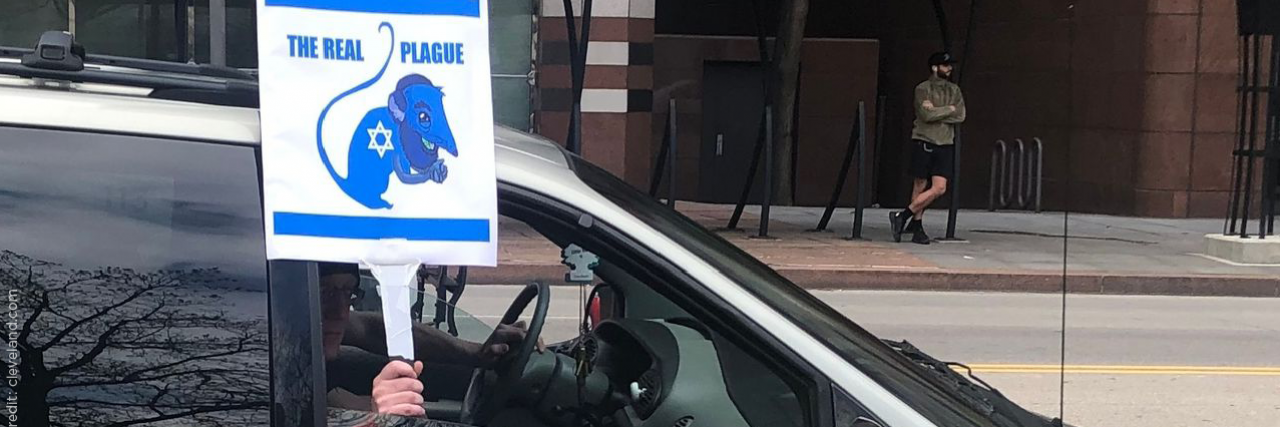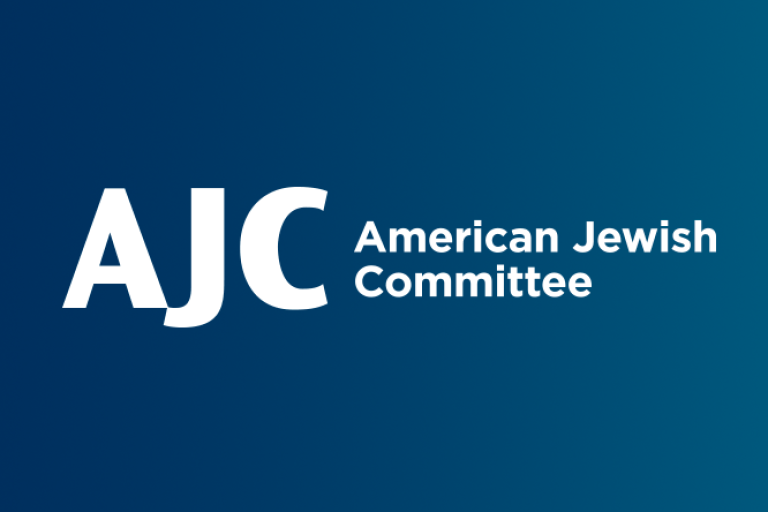May 5, 2020
Amplified by anxiety, Jew hatred, and social media, antisemitic conspiracy theories have become a concern amid the coronavirus pandemic. But the consequences of spreading misinformation can be just as catastrophic.
That’s why online security measures, anti-hate crime legislation, and educational efforts are developing across Europe and the United States to combat antisemitism and terrorism.
On Monday, April 27, Katharina von Schnurbein, European Commission Coordinator on Combating Antisemitism; Nikita Malik, Director of the Center on Radicalization and Terrorism at the Henry Jackson Society; and Holly Huffnagle, AJC’s new U.S. Director for Combating Antisemitism discussed how to counter these myths. The conversation was part of a series of digital programs AJC has developed as part of its Advocacy Anywhere initiative.
“Conspiracy theories, we are seeing in different ways, are dangerous,” said von Schnurbein. “They are dangerous not only because they create an atmosphere for the Jewish community that is very unpleasant. Because of the confinement, many are spending more time on the Internet than before. Conspiracy theories have translated into attacks in the past. We need to make sure this does not happen in the future,” she added.
Von Schnurbein pointed to European counterterrorism measures since 2018 that require social media companies to remove terrorists’ content within one hour of reporting. A cross-border rapid alert system across member states ensures that threatening posts are immediately detected. The European Union also enforces a code of conduct that pushes social media platforms to employ fact checkers that can catch and remove dangerous posts and fake accounts.
Malik said health misinformation, anti-Muslim sentiment, and antisemitism all have been on the rise as time indoors and in front of screens has increased for everyone. An alarming theme has emerged across the extremist spectrum, she said.
“It doesn’t matter if you’re far right or far left – the one thing they have in common is extreme antisemitism,” she said.
With more people facing unemployment and a potential recession, people will be seeking resources and explanations, Malik said. That may fuel effortless recruitment tactics by terrorist organizations, including Islamists and white supremacist groups.
“That often culminates with… an act of going into the real world and committing an act of violence,” Malik explained. She said her think tank has made progress ensuring all extremist groups are held equally accountable.
AJC’s Huffnagle offered four ways Americans can counter online hate. State legislatures, she said, should develop media literacy training for consumers who may be vulnerable to fake news. She also pointed to resources, such as AJC’s online glossary of antisemitic terms, Translate Hate, that can help educate non-Jewish audiences about what antisemitism looks like.
Americans tend to overlook opportunities created by the First Amendment and instead focus on how much it limits the suppression of speech, Huffnagle said. When it comes to conspiracy theorists, suppression risks backfiring, galvanizing and forcing them underground. Rather, coalitions of government, tech companies, and civil society should work together to curb malicious online behavior in the U.S., she said.
“It’s not a freedom of speech issue. It’s a corporate responsibility issue for them to clean up their platform,” said Huffnagle. The onus is also on civil society, she said. Internet users need to become good Internet citizens or “Netizens” who pounce on hate speech and fake news when they see it. “We aren’t completely helpless,” she added.
The metamorphosis of conspiracy theories into antisemitic violence started well before COVID-19, illustrated by shootings at synagogues in Pittsburgh, Poway, California and Halle, Germany. For the past year, AJC has been promoting the NO HATE Act to improve FBI hate crime reporting so the problem can be adequately addressed.
Likewise, security at Jewish houses of worship and schools have been upgraded in some parts of Europe. Education about antisemitism and Holocaust remembrance also has been mandated in some parts. But national level programs only work if they are implemented on the local level, said von Schnurbein.
“Unless it trickles down and every mayor, every school director understands what needs to happen,” she said, “there will be no change for the Jewish community.”


